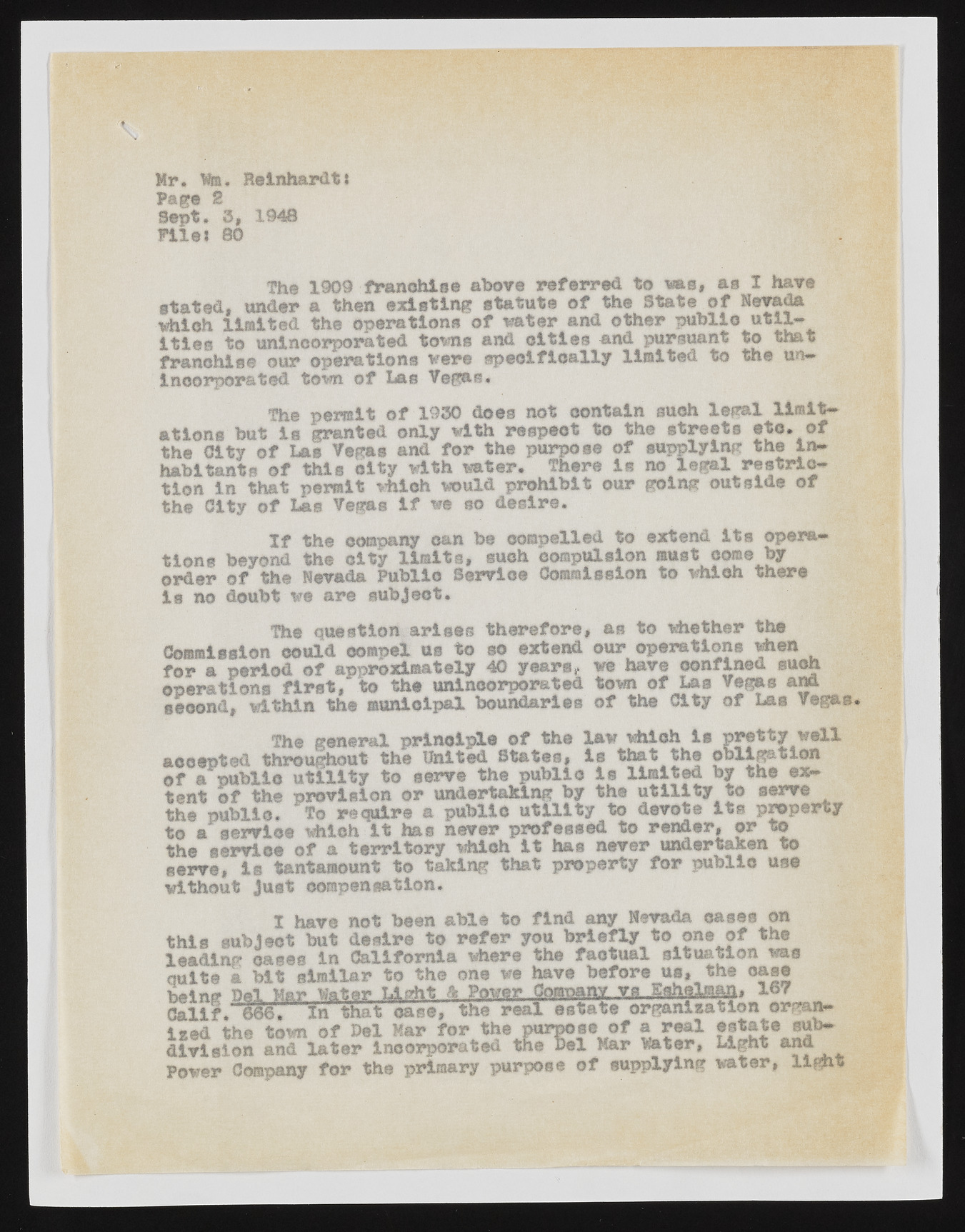Copyright & Fair-use Agreement
UNLV Special Collections provides copies of materials to facilitate private study, scholarship, or research. Material not in the public domain may be used according to fair use of copyrighted materials as defined by copyright law. Please cite us.
Please note that UNLV may not own the copyright to these materials and cannot provide permission to publish or distribute materials when UNLV is not the copyright holder. The user is solely responsible for determining the copyright status of materials and obtaining permission to use material from the copyright holder and for determining whether any permissions relating to any other rights are necessary for the intended use, and for obtaining all required permissions beyond that allowed by fair use.
Read more about our reproduction and use policy.
I agree.Information
Digital ID
Permalink
Details
More Info
Rights
Digital Provenance
Publisher
Transcription
iff(gwggw-w«|j»Vi Mr. Wm. Reinhardt I pare £ Sept. 3, 1948 Files 80 The 1909 franchise above referred to was, as 1 have stated, under a then existing statute of the State of Nevada which Halted the operations of water and other public utilities to unincorporated towns and cities and pursuant to that franchise our operations were specifically limited to the unincorporated town of Las Vegas. Hie permit of 1930 does not contain such legal limitations but is granted only with respect to the streets etc. of the City of Las Vegas and for the purpose of supplying the inhabitants of this city with water, there is no legal restriction in that permit which would prohibit our going outside of the City of Las Vegas if we so desire* If the company can be compelled to extend its operations beyond the city limits, such compulsion must come by order of the Nevada Public Service Commission to which there is no doubt we are subject. The question arise© therefore, as to whether the Commission could compel us to so extend our operations when for a period of approximately 40 years*, we have confined such operations first, to the unincorporated town of Las Vegas and second, within the municipal boundaries of the City of Las Vegas. The general principle of the law which is pretty well accepted throughout the United States, is that the obligation of a public utility to serve the public is limited by the extent of the provision or undertaking by the utility to a®*"*® the public. To require a public utility to devote its property to a service which it has never professed to render, or to the service of a territory which it has never undertaken to serve, is tantamount to taking that property for public use without just compensation. I have not been able to find any Nevada cases on this subject but desire to refer you briefly to one of the leading oases In California where the factual situation was quite a bit similar to the one we have before us, the case being Del Mar Natar Light & Power Company Calif. 666. In that case, the real estat ev so rgSsahnfitstaotllito n1 »or7g_a_nised the town of Del Mar for the purpose of a m l f^ate sub- division and later incorporated the Del Mar Mater, light ana Power Company for the primary purpose of supplying water, light

